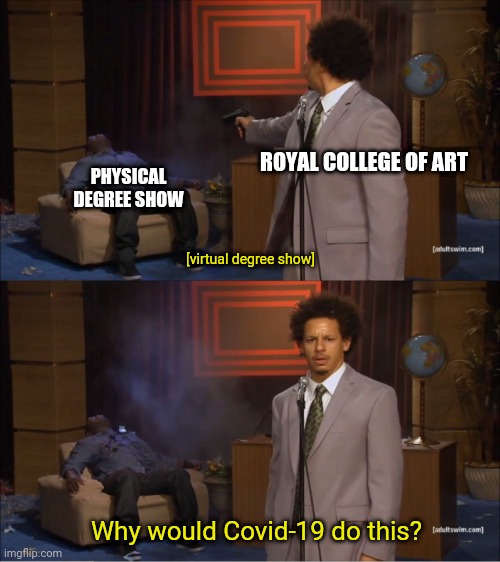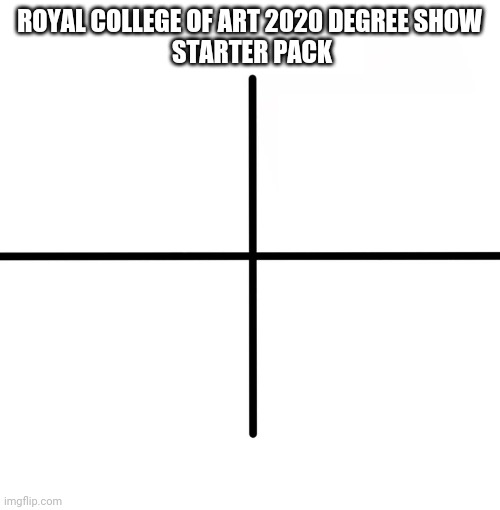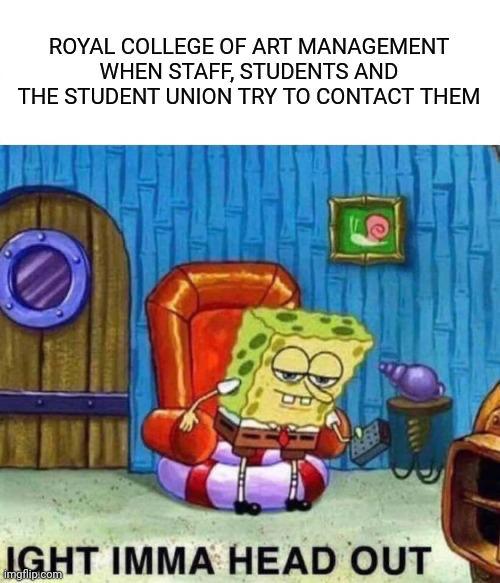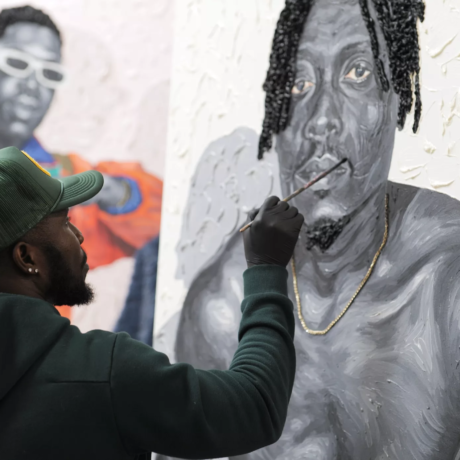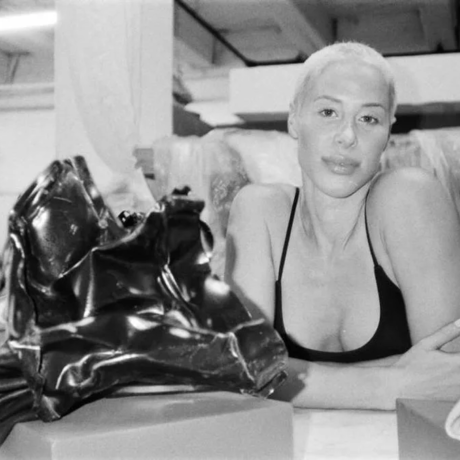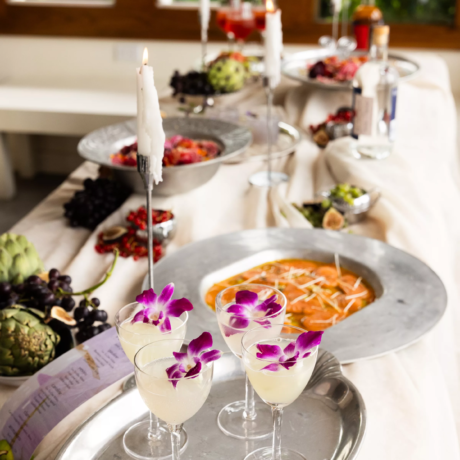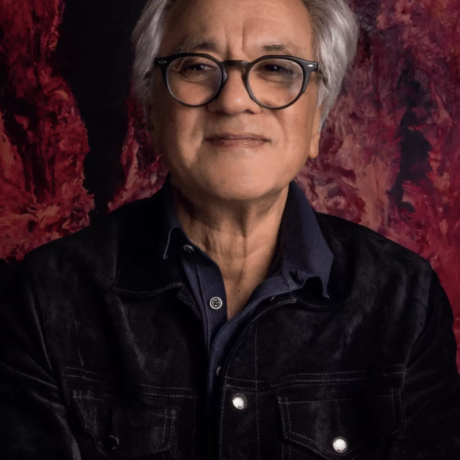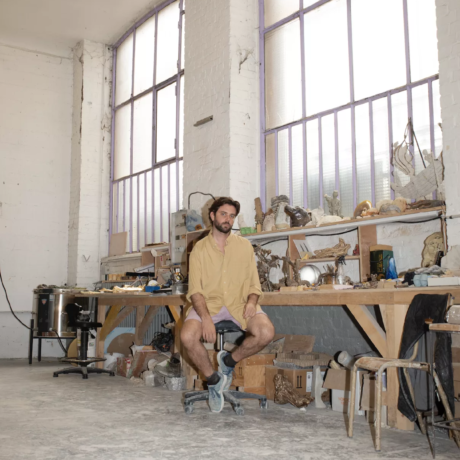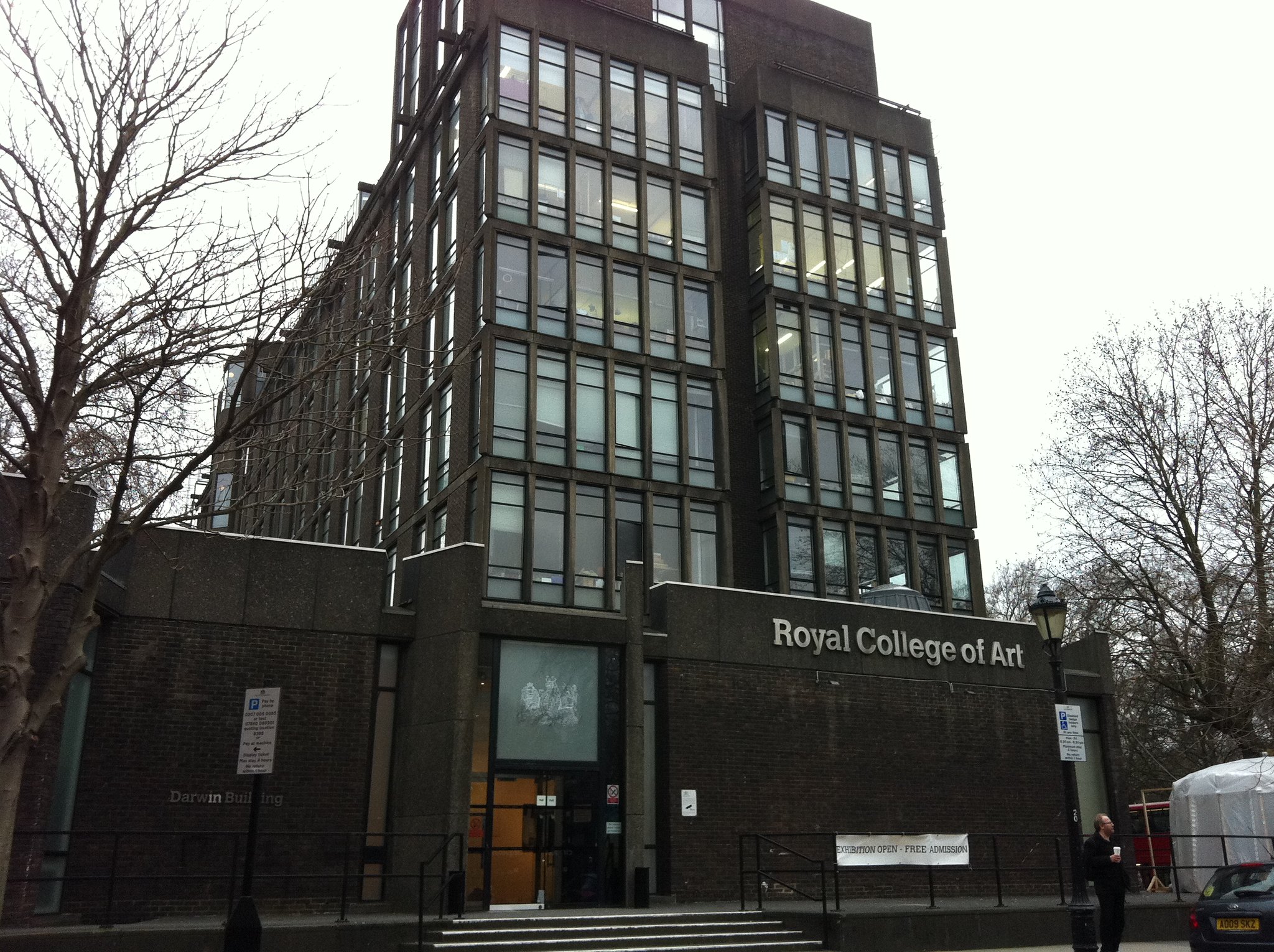
On the evening of 19 March, the night before the Royal College of Art (RCA) finally decided to close its three London campuses amid the Covid-19 outbreak, the administration quietly announced its plans to move to online learning. They also declared their intention of staging an online-only degree show. Buried in a half-dozen questions discussing the impact of the global pandemic on our education, in a tone that can only be described as International Art English, the RCA offered its full support to students who, whether they liked it or not, would “pursue this exciting and forward-thinking endeavour.”
In both its language and means of delivery, the announcement was equal parts enraging and illuminating. While many students and staff murmur criticisms about the RCA’s profit-oriented and ableist agenda, it had never been so brazenly exposed by upper management. That night, as hundreds of WhatsApp messages pinged back and forth in a newly formed “RCA Action Group”, and an online petition went live, dozens of students from some twenty courses came together in digital solidarity. With the recent UCU strikes still fresh in our minds, the picket line dismantled hardly a week before, one thing was clear: our fight would have to be entirely virtual.
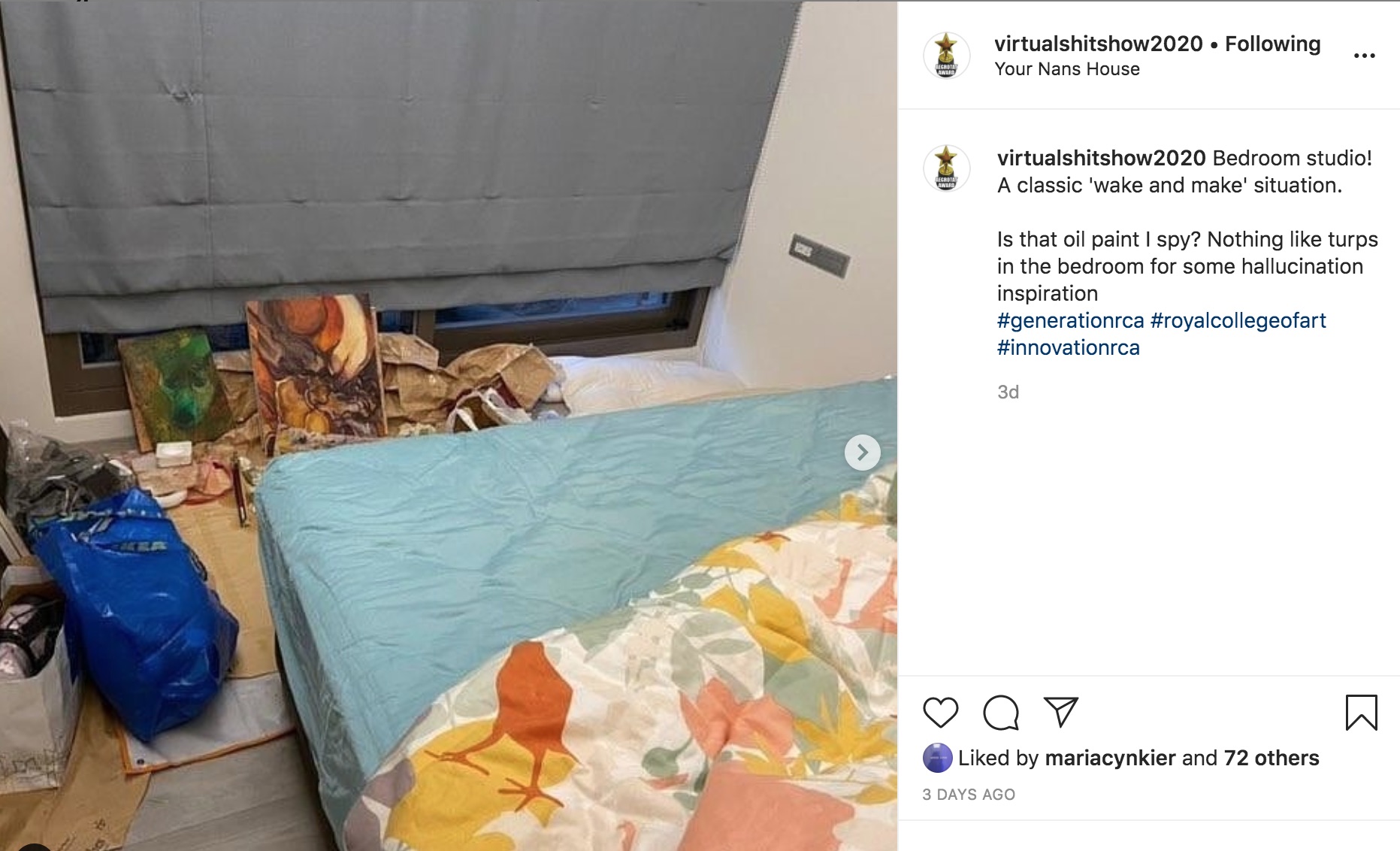
The immediate task at hand was to convince an overpaid and detached senior management that nothing short of a full suspension of all programs would ease the mass anxiety of students and staff. To many of us, this seemed obvious. How could we be expected to make work, to continue our education “as normal”, with no access to our studios, no opportunity to use the facilities and resources that drew us to the RCA in the first place? How could we focus on our practice at this time, when many of us faced the daunting challenge of supporting co-dependents while stripped of any source of income, and others were stuck in lockdown, isolated from their family?
“How could we be expected to make work, to continue our education ‘as normal’, with no access to our studios?”
The decision to pause school also seemed like the only humane thing to do. As the border between the UK and the US closed indefinitely, I stood £500 out on a cancelled trip to visit my mom with early onset dementia. As her only surviving family member, I needed to sell her house this month in order to continue paying for her care. The last thing I wanted to think about was how my art practice would fit into Paul Thompson’s self-described “matrix of opportunities” for next term. And if I chose to defer my studies, I was told, there would be no guarantee on when, or even if, I could come back.
Covid-19 is the largest calamity of our lifetime. We have friends, family members and loved ones who are vulnerable and needed our support. We need each other’s support. The RCA’s knee-jerk response is to strip us of our studios, resources and our community, then ask us to produce degree show-quality work in the middle of a crisis. Surely they would realize the impossibility of what they were asking, I naively thought.
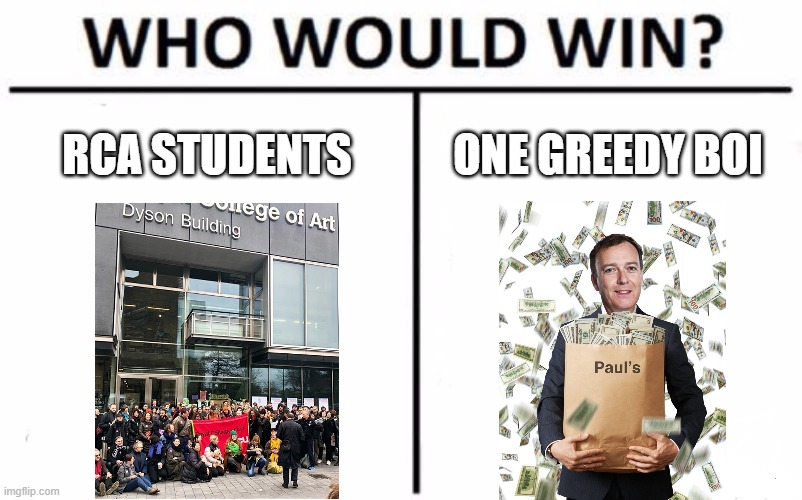
Now, with almost two weeks’ hindsight, the glaring problems of proceeding with an online-only art education and a virtual degree show “as usual” are a Grand Canyon-sized logical leap for senior management. These are figures on six-figure salaries that commission financial resilience reports; they are individuals who have abandoned their own art or design practice decades ago in favour of owning a penthouse apartment in Chelsea. It became immediately, cripplingly clear that the RCA cared little for how it was achieved, so long as the current final year group were out in June and the next cohort of fee-paying students could still arrive in October.
Bucking the more empathetic strategies of other London art schools such as Central Saint Martins, which has postponed its physical degree show until a safe point in the future, the RCA has given its second-year students a trifecta of terrible options. 1. Continue with virtual learning at the full cost of tuition; 2. Graduate with an aegrotat award by skipping the final term but seemingly still paying for the pleasure, 3. Defer your final term, with no guarantee if or when you can come back, with no chance of a physical degree show. There is no clarity from administration on crucial points like financial support and student visas, yet we are still being asked to make a decision by 1 May.
Paradoxically, the more pressure we place on the RCA to listen to its students, staff and the press, the more transparent and explicit our requests become, the more twisted and confused the RCA’s responses seem. In a fit of panic, senior management has divided up our protest into neat thirty-minute meetings with individual departments, in which Vice-Chancellor Dr. Paul Thompson, Deputy VC Dr. Naren Barfield, and school Deans have dodged questions of accountability with pre-baked PR-style statements.
Their latest tactic is to effectively silence the Students Union, we were told upon asking for SU support on 31 March. I have often thought throughout this whole debacle that such brazen institutional gaslighting could be a great plot for a Jordan Peele-style dystopian thriller. Now I realize it’s two groups trying to communicate in different languages: one of ethics and personal responsibility, the other of efficiency and profit.
Over the past two weeks, something has come loose in the murky ether of higher education. Fear of financial collapse looms large, as the liberal pretences of art schools buckle under the interests of self-preservation. Big business instincts take over. Some, like the RCA, have enforced autocratic decisions early on, echoing the Silicon Valley disruption attitude of “ask for forgiveness, not permission”.
“Fear of financial collapse looms large, as the liberal pretences of art schools buckle under the interests of self-preservation”
Others, like the dancing Dean of NYU Tisch, sent out a tone-deaf “response” to students demanding a full term tuition refund ($29,000), unleashing a tidal wave of outrage at the lack of institutional accountability. Still other schools, like the Savannah School of Art and Design (SCAD) in Hong Kong, folded entirely and without notice, leaving its students smouldering in the wreckage. I’ve never seen the ivory tower looking so dishevelled and manic as it tries to guard its crumbling castle.
I wonder if a total disillusionment with higher education is what it means to be the Covid Class of 2020. I hurt for my cancelled physical degree show and the many opportunities it promised. The White Pube are right to criticize this understanding of degree shows, but they are wrong to displace that manic energy onto the students. For the students, who take on massive financial and emotional burdens to complete postgraduate degrees, who internalize the strains of the institution and hold themselves accountable for making their sacrifices “worth it”, their attitude is not an isolated thing. It’s the social and economic conditions that put them in that headspace which ought to be questioned.
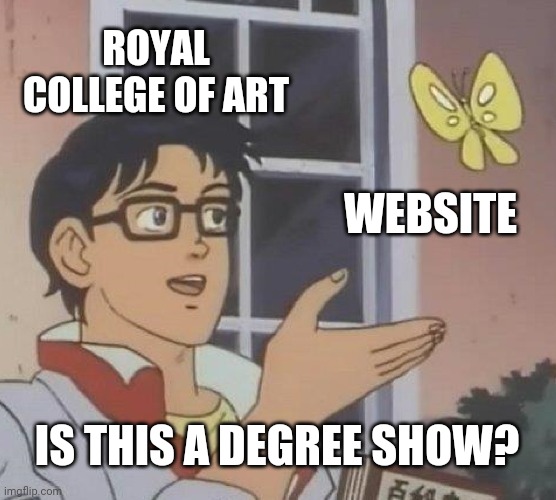
I feel for many of my classmates without the privilege of UK citizenship, a flexible side job or a safe home environment, for whom the RCA’s negligent actions has been a hundred times harder to weather. I feel for my tutors who are and have always been the effective punching bags of this institution, and who are now burdened with the impossible task of alchemizing a virtual learning curriculum for studio-based programs.
Our battle against the RCA is about rejecting the elitist, ableist, capitalist logic that positions a virtual degree show and virtual learning amid a global health crisis as the only viable option. But it is also about so much more. This is a fight for art schools’ accountability in times of global uncertainty, and the need for a system-wide reform.
Now is the time for these institutions to cease their “business as usual” approach. It is time for those in power to listen closely to the voices of their students and staff. These are the individuals truly keeping these universities afloat, and the RCA, alongside all other art schools, must take heed if they hope to come out of this pandemic alive.
